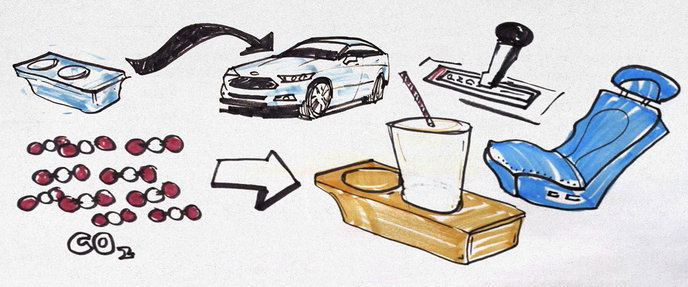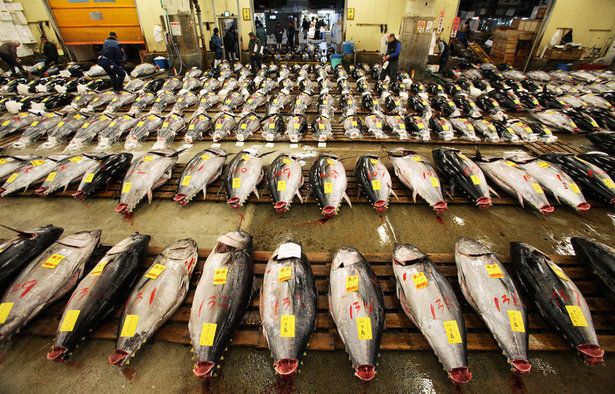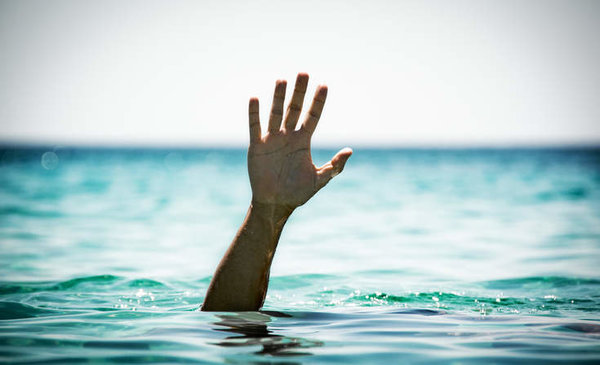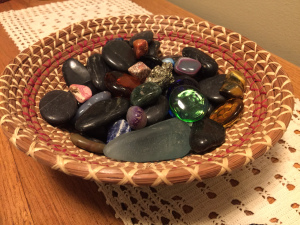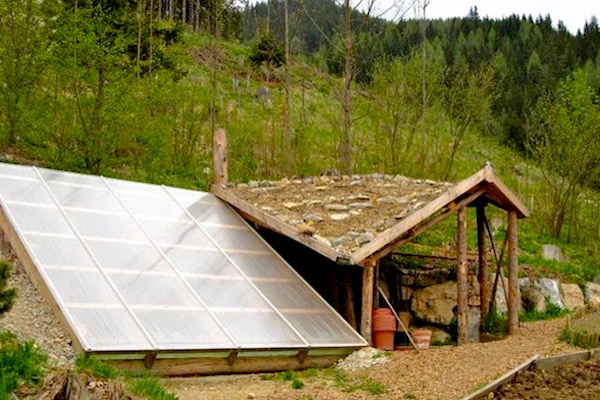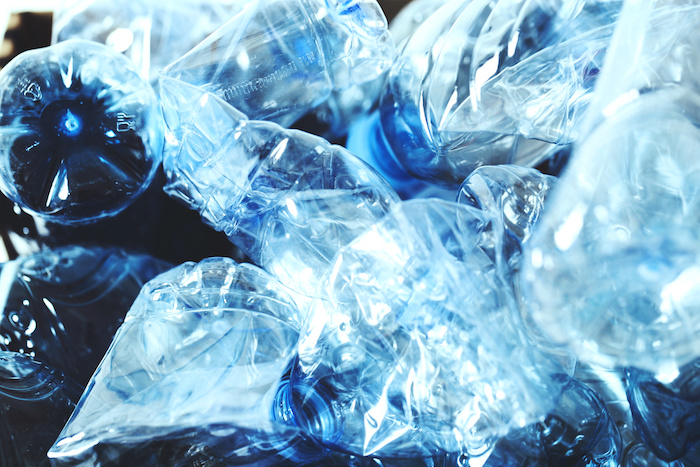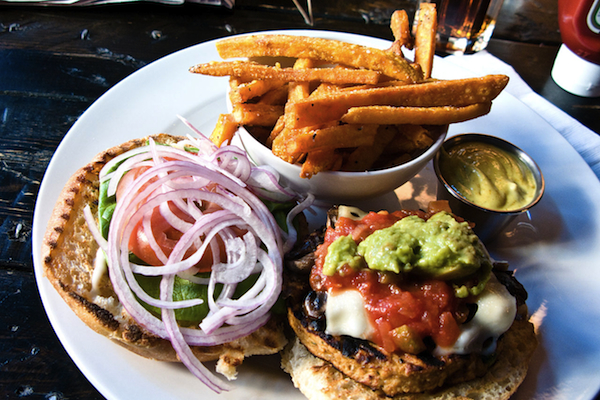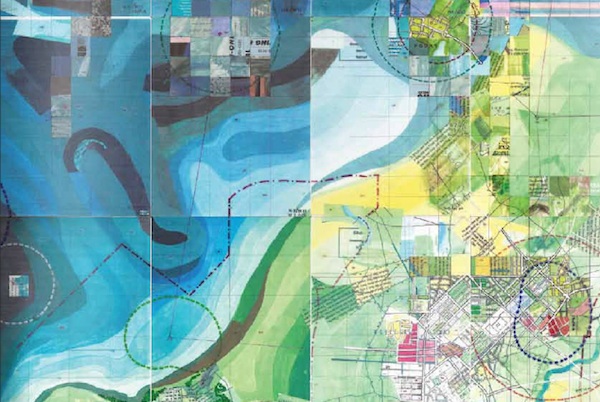One of the first companies to start making products out of carbon pollution is an automaker. For the last four years, Ford has been working with a manufacturer to develop a captured CO2-based foam, and soon a plastic, that can eventually replace parts made from petroleum.
Continue reading... →Environmentalists are demanding that one of the most prized fishes on the planet, Pacific bluefin tuna, be listed as an endangered species because the current global stock is down over 97 percent from pre-fishing levels.
Continue reading... →The middle class, which is “fundamental to social stability and economic growth” with real clout, will be threatened by climate change in the near future as the majority live in urban cities, many of which are located on coastlines exposed to climate risks,.
Continue reading... →The salt-water powered car was recently approved in Europe. It works just like a hydrogen fuel cell except that the liquid used for storing energy is saltwater. This technology among others, are paving the way for clean green alternative fuel that have a serious potential to replace petroleum in many cases.
Continue reading... →Being grateful goes beyond the obligatory “thank you.” It is an attitude and mindset that permeates your entire being. When you are grateful for what you have, your heart sings. The world looks brighter and happier. Want to cultivate more gratitude in your life? Start a gratitude practice today.
Continue reading... →This $300 DIY underground greenhouse is ideal for gardening in colder climates by collecting the sun’s rays and earth’s heat to grow food year round. From vertical farms to solar-powered “farms from a box,” we’ve seen how farming technology has grown leaps and bounds in recent years. But for those who prefer something a little more rustic, growing food from a hole in the ground is as low-tech as you can get. A walipini, meaning “place of warmth” from the Amaraya Indian language, is an underground greenhouse with a transparent (usually plastic) covering that stays warm by passively soaking up the sun’s heat and absorbing the earth’s thermal energy. Fruits and vegetables can be grown year-round, making it ideal for communities in colder locations that can’t usually grow their own fresh and local produce during certain parts of the year. The farming method isn’t exactly new. Walipinis have been used in South and Central America for decades, including one that can grow bananas at 14,000 feet in the Andes. The technique was notably adopted by The Benson Institute, a worldwide food security program of the Mormon church. According to The Plaid Zebra, the Benson Institute and its team of volunteers built a community-sized 74-feet-by-20-feet walipini […]
Continue reading... →In a bold move toward pollution control, San Francisco has just become the first city in America to ban the sale of plastic water bottles, a move that is building on a global movement to reduce the huge amount of waste from the billion-dollar plastic bottle industry. Over the next four years, the ban will phase out the sales of plastic water bottles that hold 21 ounces or less in public places. Waivers are permissible if an adequate alternative water source is not available. One of the larges supporters of the proposal was the Think Outside the Bottle campaign, a national effort that encourages restrictions of the “eco-unfriendly product.” San Francisco’s ban is less strict than the full prohibitions passed in 14 national parks, a number of universities and Concord, Mass. Violators of the ban would face fines of up to $1,000. Joshua Arce, chairman of the Commission on the Environment, said the ban is “another step forward on our zero-waste goal.” The City wants to have no waste going to its landfill by 2020. Its diversion rate now stands at 80 percent. Past efforts toward the goal included banning plastic bags and plastic-foam containers. “We had big public events for decades without plastic bottles and we’ll […]
Continue reading... →About a year ago, Meatless Monday featured “Cowspiracy,” the documentary linking animal agriculture and environmental disaster. The film just nailed distribution through Netflix . Kip Andersen, co-producer/director of “Cowspiracy: The Sustainability Secret,” considered himself to be an environmentalist. He recycled to reduce waste, took quick showers to save water, supported several environmental organizations. Then “I did some research and discovered all these incredible things — rainforest destruction, species extinction — can all be tied to animal agriculture. Jeez, this is the cause?” And if so, why was no one talking about it? Stunned, Andersen “checked the websites of my favorite nonprofits — Greenpeace, Sierra Club, Surfrider — I didn’t see anything on there. I started emailing and calling over months, years, and no avail. That’s when I started to step this up, that’s when I teamed up with Keegan [fellow producer/director Keegan Kuhn] to get to the bottom of this.” The bottom, it turns out, is a long way down. The feature-length documentary follows Anderson on his journey into the heart of darkness. And silence. “There’s suppression and mismanagement of information,” says “Comfortably Unaware” author Dr. Richard Oppenlander, the degree of which surprised even Kuhn of First Spark Media. “I […]
Continue reading... →516 ARTS in Albuquerque, NM, is organizing a collaborative season of public programming in the fall of 2015 that explores climate change through the arts to create a platform for education and dialogue. The public programs for HABITAT: Exploring Climate Change Through the Arts will include: a series of exhibitions at 516 ARTS; the popular Downtown Block Party; special events with guest speakers; film screenings; and youth programs. Climate change is an urgent issue of both global and local concern. The Southwest can be considered one of the most “climate-challenged” regions of North America, with rising annual temperature averages, declining water supplies, and reduced agricultural yields. In New Mexico we’ve already seen destabilized and unpredictable weather patterns, water sources going dry, forests not recovering from fire, loss of urban trees, and crop failures. Public programs for HABITAT strive to raise awareness about these issues by taking an innovative approach to engaging with social and environmental change, and by bringing the community together to focus on sustainability. 516 ARTS will present a series of speakers to address the issues around climate change from both the science and art perspectives. Speakers include renowned artist Mel Chin, who is currently working on a project about […]
Continue reading... →